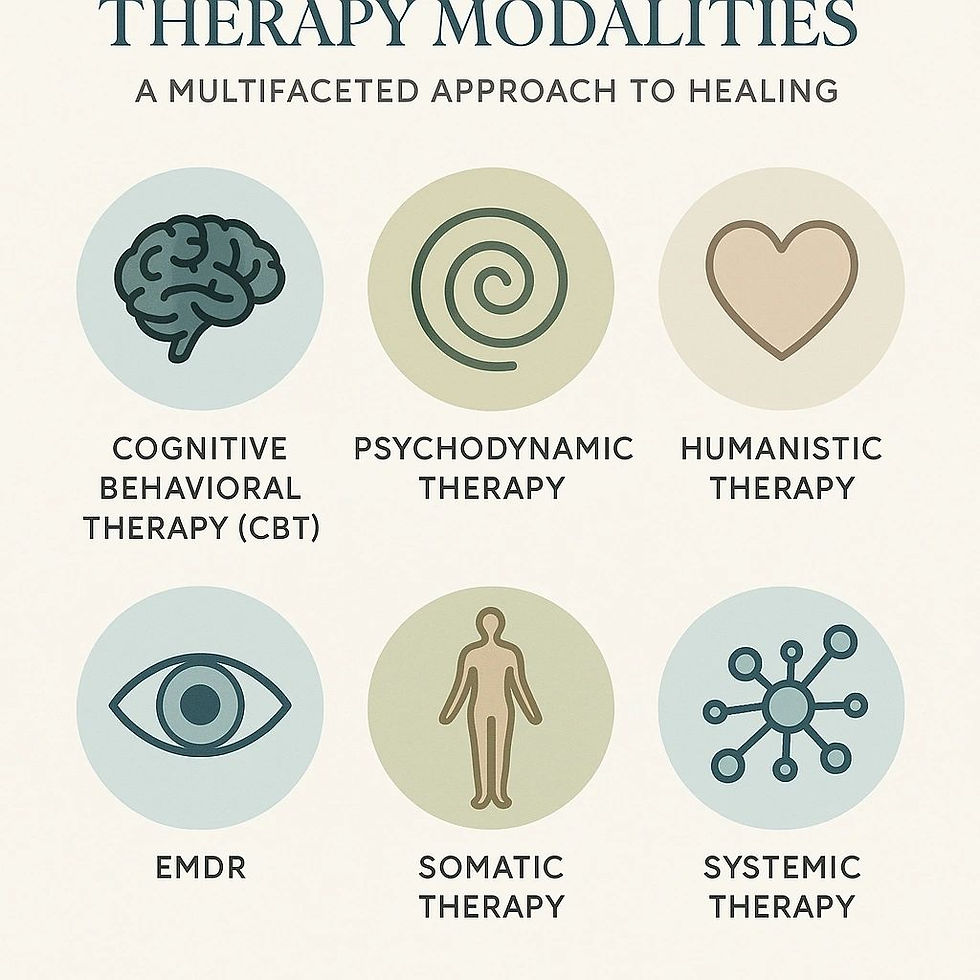Recognizing and Responding to Narcissistic Behavior in Friendships
- Allison McCue-Napoli
- Mar 17
- 2 min read

Friendships are meant to be a source of support, mutual respect, and genuine connection. However, sometimes, we find ourselves entangled in friendships with individuals who exhibit narcissistic behavior. Such relationships can be emotionally draining and toxic if not recognized and managed appropriately.
Recognizing Narcissistic Behavior in a Friend
Narcissistic traits exist on a spectrum, and not every self-centered friend is a full-blown narcissist. However, some common behaviors to watch for include:
Constant Need for Attention – They dominate conversations, often redirecting discussions to themselves, dismissing your concerns, or one-upping your experiences.
Lack of Empathy – They show little genuine interest in your feelings or struggles, often invalidating your emotions.
Manipulative Tendencies – They may guilt-trip you, play the victim, or use gaslighting tactics to make you question your perceptions.
Sense of Entitlement – They expect constant admiration and special treatment but rarely reciprocate.
Competitive or Jealous Behavior – They feel threatened by your achievements rather than celebrating them.
Frequent Betrayal or Lack of Loyalty – They may gossip about you, disclose your secrets, or abandon you when you need them most.
Control and Dominance – They may pressure you into making choices that serve their interests rather than supporting your own decisions.
Responding to a Narcissistic Friend
Once you recognize these patterns, setting boundaries and protecting your emotional well-being is crucial. Here’s how you can respond:
Establish Clear Boundaries – Define what behavior you will and won’t tolerate. Politely but firmly communicate your limits.
Limit Emotional Investment – Accept that you may never receive the support or empathy you desire from this friend. Keep interactions light and avoid sharing deeply personal matters.
Avoid Engaging in Power Struggles – Narcissists thrive on drama and control. Don’t feed into arguments or attempts to provoke reactions.
Practice Self-Care – Surround yourself with supportive, compassionate friends. Engage in activities that bring you peace and confidence.
Consider Distancing or Ending the Friendship – If the relationship consistently drains you, stepping back or cutting ties may be necessary for your mental health.
Friendships should uplift and inspire rather than drain and manipulate. Recognizing narcissistic behaviors early allows you to make informed choices about maintaining or distancing yourself from toxic relationships. Prioritizing your emotional well-being is not selfish—it’s necessary for fostering healthy, fulfilling connections in your life.








Allison, your point about narcissistic traits existing on a spectrum, rather than every self-centered friend being a full-blown narcissist, really resonates. It highlights the crucial challenge of discerning genuine empathy deficits from occasional self-absorption, which can be incredibly difficult in close relationships. While recognizing these behaviors is vital for setting boundaries, it often leaves one wondering about the deeper patterns and potential underlying conditions. For those looking to gain a clearer perspective on whether these patterns align with a clinical diagnosis, a resource for understanding narcissistic personality disorder can be incredibly insightful.
It's so important that you highlight how narcissistic traits exist on a spectrum, Allison, and that not every self-centered friend is a full-blown narcissist. This distinction is critical, as it helps readers approach these challenging dynamics with both awareness and discernment, rather than jumping to conclusions. It really frames the conversation thoughtfully. While your points are excellent for identifying behaviors, sometimes the patterns can feel overwhelming, leading one to wonder if they're dealing with something more clinically defined. For those who find themselves consistently grappling with these intense dynamics and are seeking a clearer understanding, exploring a resource like a self-assessment for narcissistic personality disorder can offer valuable insights and clarity.
Allison, your point about narcissistic traits existing on a spectrum is so important. It really highlights the challenge in distinguishing between someone occasionally exhibiting self-centered behavior and a deeper, more pervasive pattern that truly impacts a friendship's health. Often, the cumulative effect of these behaviors is what truly signals a problem. For those grappling with whether a friend's behaviors lean towards genuine narcissism, getting a clearer, more structured understanding can be incredibly helpful. In such cases, a resource like a tool to assess narcissistic tendencies can provide valuable insights and a starting point for reflection.
Exploring traits related to self-worth, empathy, and interpersonal relationships can be a difficult but important journey. If you're questioning these aspects of your personality, an online NPD test offers a user-friendly way to gain confidential insights into traits associated with Narcissistic Personality Disorder.
Understanding personality traits, both in ourselves and others, can be complex. If you're trying to gain clarity on certain behavioral patterns that seem to align with narcissistic traits, either for self-reflection or to better understand a relationship, an online Narcissist Personality Test can be an initial, private resource. These tests usually present questions based on common characteristics associated with Narcissistic Personality Disorder (NPD), like a sense of entitlement or lack of empathy. It's crucial to remember that this is not a clinical diagnosis – NPD can only be diagnosed by a qualified mental health professional. However, such a test might offer some insights or highlight patterns that warrant further exploration or professional consultation.